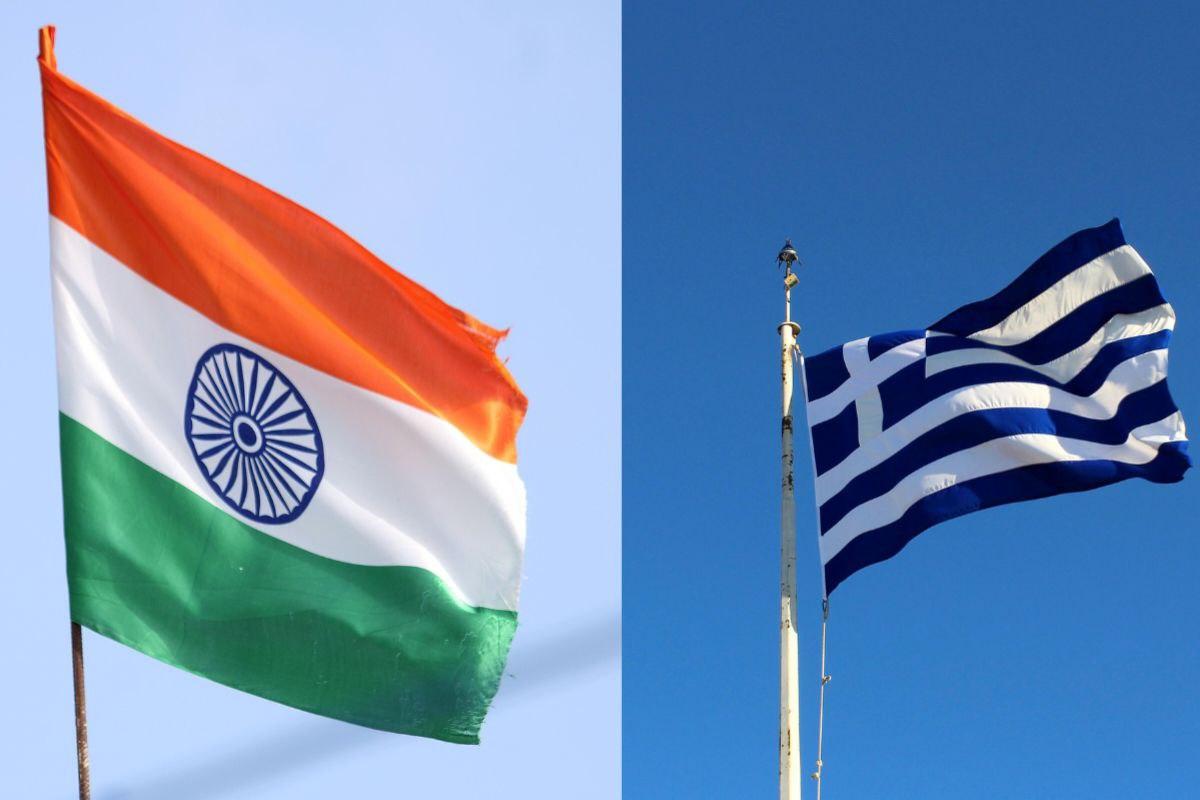
A fresh wave of strategic recalibration is sweeping across Southeast Europe, and this time, it is being propelled not by NATO or the West, but by an unexpected but powerful collaboration—between India and Greece. In May 2025, at the DEFA 2025 defense exhibition in Athens, India unveiled its indigenously developed Long Range Land Attack Cruise Missile (LRLACM), and what followed sent shockwaves across the region, particularly to one country—Turkey.
This partnership, while still under consideration, has already triggered visible unease in Ankara. The reason? Greece may soon integrate India’s powerful LRLACM missile system into its growing arsenal. For a country locked in decades-long strategic rivalry with Turkey, this marks a potential game-changer in the military balance of the Eastern Mediterranean.
Greece has been a traditional NATO member with a sensitive geographic position facing Turkey directly. Their relations are marred by unresolved conflicts over Aegean Sea boundaries, the Cyprus issue, and cultural-religious tensions. In this context, Greece's move to upgrade its defense with a cruise missile capable of striking 1000 to 1500 kilometers away has stirred a tectonic shift in military equations.
The LRLACM, showcased by India for the first time on an international platform during DEFA 2025, is a subsonic, high-precision, multi-role cruise missile developed by DRDO (Defence Research and Development Organisation). Its ground-launched range is 1500 kilometers, while its naval platform range is 1000 kilometers. It has already been successfully tested in November 2024. Capable of carrying both nuclear and conventional warheads, this missile can accurately strike even deeply concealed enemy targets.
If Greece incorporates the LRLACM into its fleet of 24 Rafale jets and over 80 F-16 Viper aircraft, Turkey could find its key military installations in places like Izmir, Bursa, Ankara, and even parts of the Black Sea coast within striking range. According to Greek media reports, high-level Greek defense officials showed deep interest in the missile at DEFA 2025, and media sources hint at a possible collaboration already in the works.
This missile offers Greece an affordable, advanced alternative to Western systems like the American Tomahawk or Israeli long-range platforms that heavily strain Greece’s defense budget. India’s offering is not only economically viable but also opens doors for strategic alignment with a rising defense power.
The missile’s strategic edge lies in its stealth and versatility. It flies close to the ground, making it difficult for radar systems, including Turkey’s Russian-origin S-400 air defense system, to detect. With a flight profile similar to U.S. Tomahawk and Russian Kalibr cruise missiles, the LRLACM is built for high-precision strikes and deep penetration in hostile territory.
India's LRLACM is powered by an indigenous small turbofan engine, developed under the STF Shakti program. It provides fuel efficiency and endurance, allowing for long-range and sustained performance. The missile can be launched from land, naval platforms, and potentially even air platforms like the Rafale or F-16 Viper. For Greece, this flexibility opens up new strategic options for both defensive and offensive posturing.
Another important aspect is the impact this missile could have on NATO’s internal dynamics. Turkey’s procurement of Russian S-400 systems already strained its relationship with the U.S. and led to its ousting from the F-35 program. Now, if NATO-member Greece adopts a powerful Indian missile system, it adds a new layer of complexity. It may signal that European countries are willing to diversify their defense sources, and India is fast becoming a trusted supplier.
The India-Greece relationship has been warming steadily. Greece’s recent acquisition of Rafale jets—a fighter jet also operated by India—has laid the foundation for smoother technological integration. Air Chief Marshal A.P. Singh’s recent visit to Greece, where he interacted with Greek defense officials and tested Rafale simulators, only adds fuel to this growing military synergy.
From a strategic standpoint, the adoption of LRLACM by Greece marks a shift from a purely defensive to a deterrence-based and offensive-capable military doctrine. For Turkey, this is an open challenge. If the deal goes through, it would bring almost all Turkish air bases, naval outposts, and missile defense sites within Greece’s reach. For India, it would be a masterstroke—extending its defense influence into Europe while also sending a strong message to those backing its adversaries in South Asia.
It’s worth noting that Turkey had supported Pakistan during Operation Sindoor in May 2025 by supplying drones and weaponry. In that context, Greece’s interest in Indian weapons is being interpreted by Turkish media as a retaliatory alliance. The optics are clear—India is now not only making weapons for self-defense but is actively building a circle of strategically aligned partner nations, thereby enclosing adversarial regions in a tighter security net.
The LRLACM is derived from India’s Nirbhay missile but features significant advancements, including the indigenous turbojet engine and modular launch capabilities. India has already equipped more than 30 of its naval ships with vertical launch modules for this missile. Now, this cutting-edge technology is making its way to Europe.
For Turkey, this is not just a military concern—it is a geopolitical headache. If a NATO country adopts Indian weapons that threaten Turkey’s strategic depth, it would alter not only the Mediterranean’s defense posture but the perception of India’s defense industry across the Western bloc.
In conclusion, this India-Greece missile partnership is more than just a defense deal. It’s a strong signal of India’s emerging role as a global defense power and Greece’s determination to reshape its military strategy. For Turkey, it’s a strategic crisis. For India, it’s a diplomatic victory. For the world, it’s a reminder that the global defense order is no longer West-centric.
Stay tuned to "Mitra Desh" for more such strategic stories that reflect how India is redefining global alliances.
Disclaimer:
This blog article is based on publicly available defense exhibition reports and strategic analysis. It does not reflect any official confirmation of defense purchases unless stated otherwise. Geopolitical situations are subject to change based on government actions and international diplomacy.




